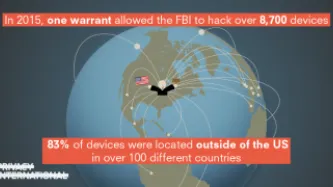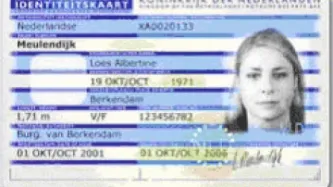Search
Content type: Examples
Uber has been fined €290 million in the Netherlands for sending European taxi drivers' data to the US without appropriate safeguards in violation of the EU's GDPR. The Dutch data protection authority, which adjudicated a complaint originally filed in France on behalf of more than 170 drivers there, says Uber has since stopped the practice. Uber contests this decision; the appeal is expected to take four years. Earlier in 2024, the authority also fined Uber €10 million for infringing privacy…
Content type: Examples
In two cases brought by Worker Info Exchange and the App Drivers and Couriers Union on behalf of drivers, the Court of Appeal in Amsterdam has upheld a 2021 ruling in a lower court that under the GDPR Uber and Ola Cabs must disclose the personal information and profiling that the companies use to create "fraud probability scores" and "earnings profiles" to workers. These scores and profiles are in turn used in automated decision making to allocate work and pay rates. The court rejected the…
Content type: Examples
In an unprecedented interim ruling, a student has provided sufficient facts to uphold a complaint that the Free University discriminated against her when its anti-cheating algorithm failed to log her in via face detection, likely due to the darker colour of her skin. The university has ten weeks to prove that the software did not discriminate.
https://www.mensenrechten.nl/actueel/nieuws/2022/12/09/eerste-keer-vermoeden-van-algoritmische-discriminatie-succesvol-onderbouwd
Writer:…
Content type: Examples
In March the Dutch government announced that a contact tracing app would become the core of its testing policy. Of the 750 proposals it received in response to its open tender, 63 were long-listed; however, none of the seven finalists met the privacy and security criteria. Research simulating the effects of different policy measures found that random testing could in some cases be more effective and require fewer tests than the level of testing required for a contact tracing app to work. The…
Content type: Examples
The Dutch data protection authority, Autoriteit Persoonsgegevens, is recommending against a bill working its way through the parliament that would force telecoms operators to collect more data on their customers and share it with Statistics Netherlands as part of the country’s pandemic response. The National Institute for Public Health and the Environment (RVIM) has compared this data to a “smoke alarm” that could provide an early warning of new outbreaks. However, the AP complains that the…
Content type: Examples
The Manchester-based cybersecurity company VST Enterprises is working a digital health company Circle Pass Enterprises to create the “Covi-pass” digital health passport intended to allow holders to work and travel safely. The Covi-pass uses a colour system of red, green, and amber to indicate whether the holder has tested positive or negative for the coronavirus, and holds other key information such as name, address, and age, plus a biometric. Despite the challenge of sourcing enough…
Content type: Examples
The Dutch coronavirus containment measures introduced on March 23 were in line with many other countries: gatherings banned until June 1 except for funerals and weddings; social distancing; personal services such as nail bars and hairdressers shut down; schools, gyms, fitness centres, and sports clubs closed through April 6; working from home as much as possible. Citizens are allowed to go for walks, but not in groups. Ministers have promised adequate notice in case the restrictions need to be…
Content type: Long Read
Introduction
A growing number of governments around the world are embracing hacking to facilitate their surveillance activities. Yet hacking presents unique and grave threats to our privacy and security. It is far more intrusive than any other surveillance technique, capable of accessing information sufficient to build a detailed profile of a person, as well as altering or deleting that information. At the same time, hacking not only undermines the security of targeted systems, but also has…
Content type: Press release
The London-based human rights watchdog Privacy International today attacked Justice Minister Donner's campaign on 'Wet op de uitgebreide identificatieplicht' as an "underhanded" attempt to convince innocent citizens to forego their legal rights.
Last year the organisation advised that the identity legislation would violate both the European Convention on Human Rights and the UN Declaration on the Rights of the Child.
Privacy International today warned that the identity campaign indicated that…
Content type: Press release
The London-based human rights watchdog Privacy International today warned that Justice Minister Donner's proposed 'Wet op de uitgebreide identificatieplicht' will violate the European Convention on Human Rights. The organisation has vowed to take legal action in the courts if the Parliament approves the proposals.
The proposed law will give a wide range of government and law enforcement officials the power to demand identification in the course of their duties. A penalty of €2,250 (US$2,…
Content type: News & Analysis
Privacy International is writing this Open Letter to Members of both Chambers of the Netherlands Parliament to express our deep concern over Justice Minister Donner's proposed 'Wet op de uitgebreide identificatieplicht'. We believe these requirements will violate the European Convention on Human Rights and the UN Convention on the Rights of the Child.
By way of introduction, Privacy International (PI) is a human rights group formed in 1990 as a watchdog on surveillance by governments and…

